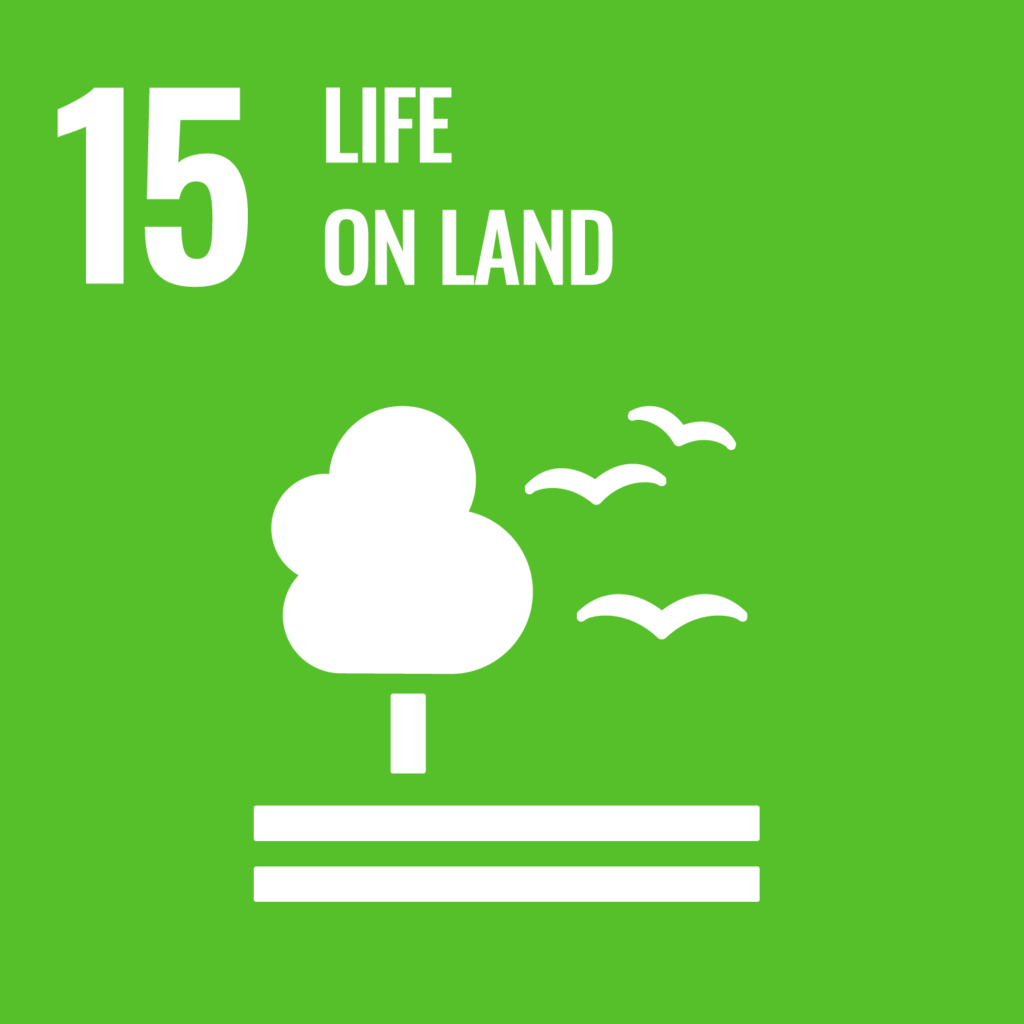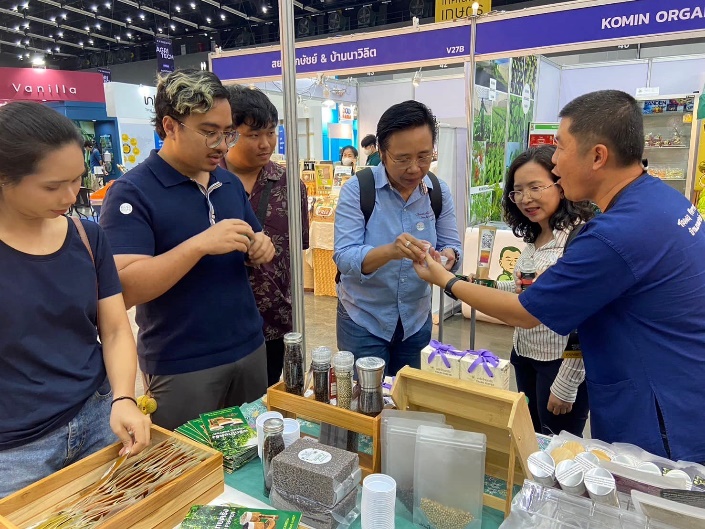Reporters: Asst.Prof.Dr. Prapot Maliwan
Assoc.Prof.Dr. Pornsil Seephueak
Asst.Prof.Dr. Nion Chirapongsatonkul
Asst.Prof.Dr. Worawitoo Meesook
Evidence Date: during 2024 Jan-Dec
Related Indicators: 15.3.1
Details:
Researchers from the Faculty of Agriculture, Rajamangala University of Technology Srivijaya are pioneering innovative biotechnological approaches to restore and rehabilitate degraded lands, directly addressing land degradation neutrality goals outlined in SDG Target 15.3. This research initiative encompasses two breakthrough projects that transform abandoned and underutilized land into productive ecosystems while promoting sustainable resource management.
Project 1: Microbial Innovation for Aquaculture Land Restoration
The first initiative, led by Asst.Prof.Dr. Nion Chirapongsatonkul with support from the National Research Council of Thailand (NRCT), focuses on establishing a “Learning Center: Communal Microbial Bank for Environment Friendly Aquaculture.” This project addresses the critical challenge of abandoned shrimp ponds and degraded aquaculture lands in Nakhon Si Thammarat and surrounding provinces. Through advanced biotechnology, the research team has developed photosynthetic bacteria (PSB) capable of rehabilitating deteriorated water quality in abandoned aquaculture sites, enabling the restoration of these lands for productive use.
The innovative approach involves cultivating specialized microbial strains that can remediate contaminated water bodies and restore ecological balance in degraded aquaculture lands. Farmers participate in hands-on training at the RUTS Nakhon Si Thammarat Campus, learning to propagate PSB cultures and apply them to their own abandoned ponds. This community-based model creates a sustainable microbial bank system where farmers can access starter cultures and multiply them independently, reducing dependency on external inputs while restoring previously unproductive land.
The environmental impact extends beyond individual farms. By converting abandoned shrimp ponds back into functional aquaculture systems, this project prevents further land degradation and reduces pressure on pristine coastal ecosystems. The PSB technology improves water quality parameters, controls harmful algal blooms, and establishes beneficial microbial communities that support sustainable aquaculture production. This biological restoration method offers an eco-friendly alternative to chemical treatments, aligning with principles of ecosystem conservation and sustainable land use.
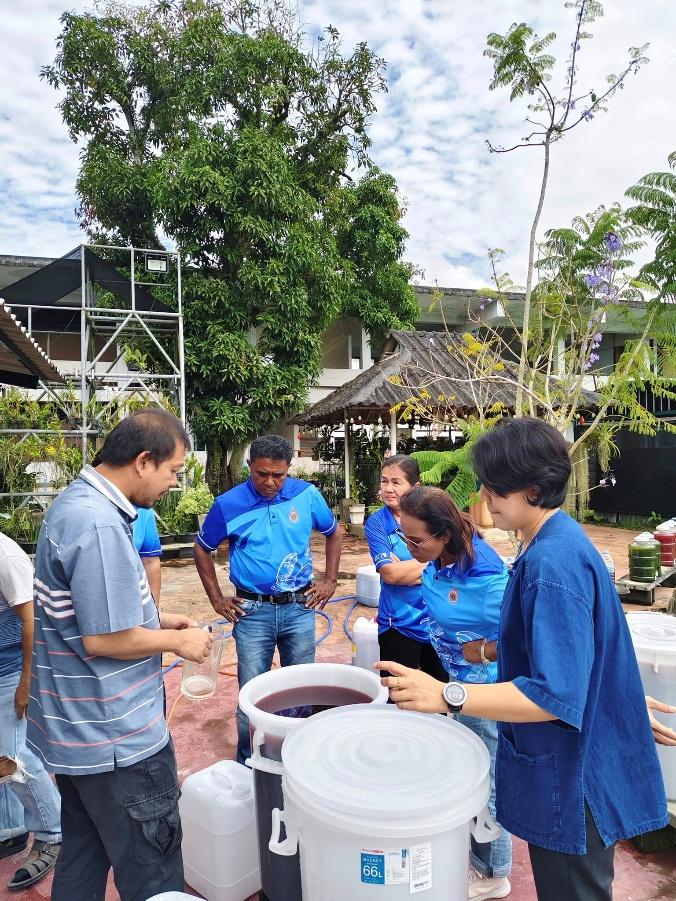
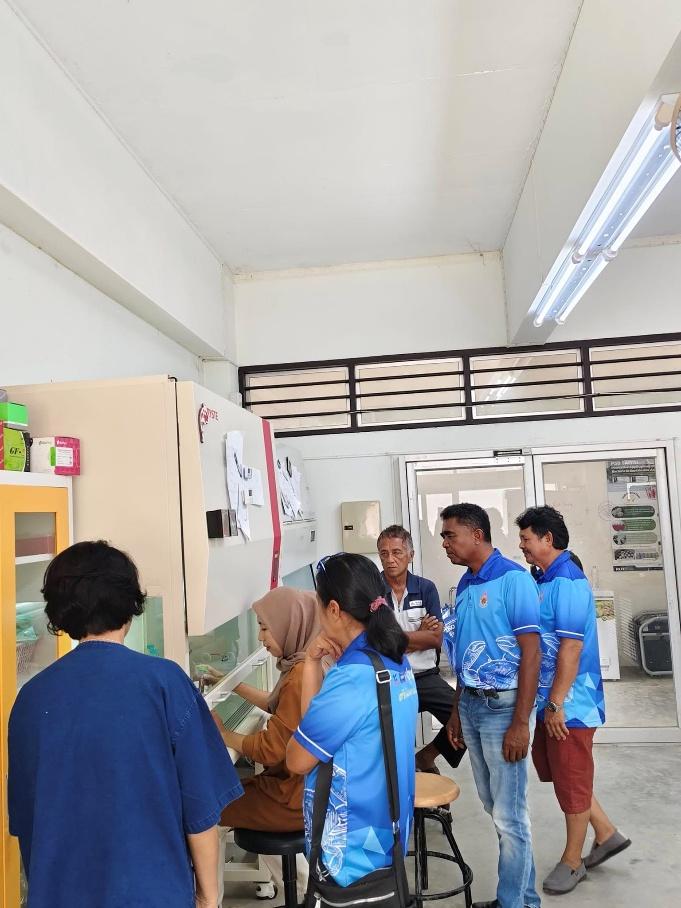
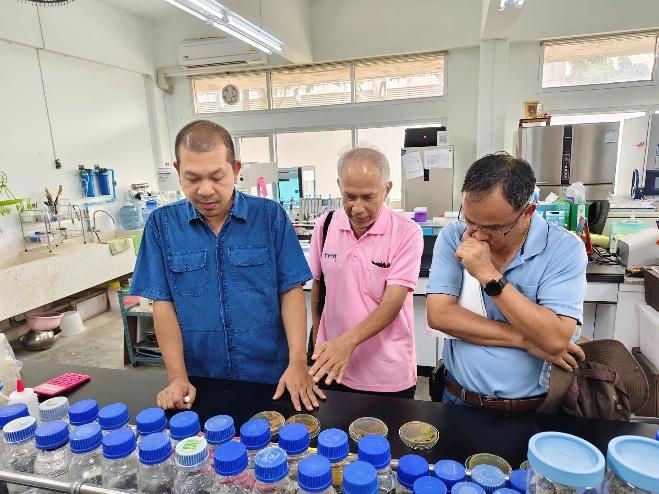
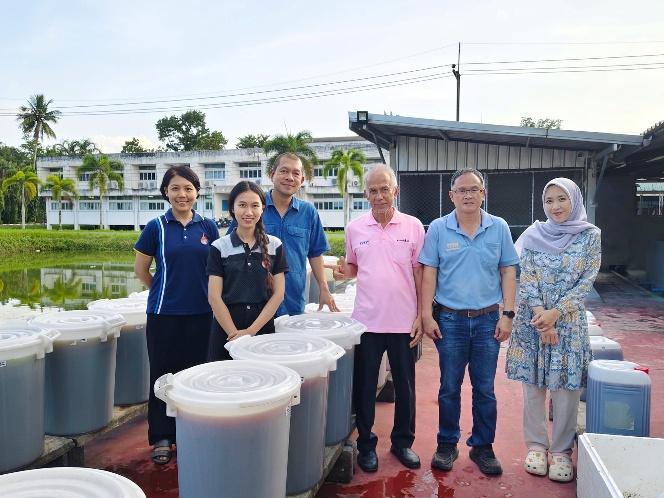
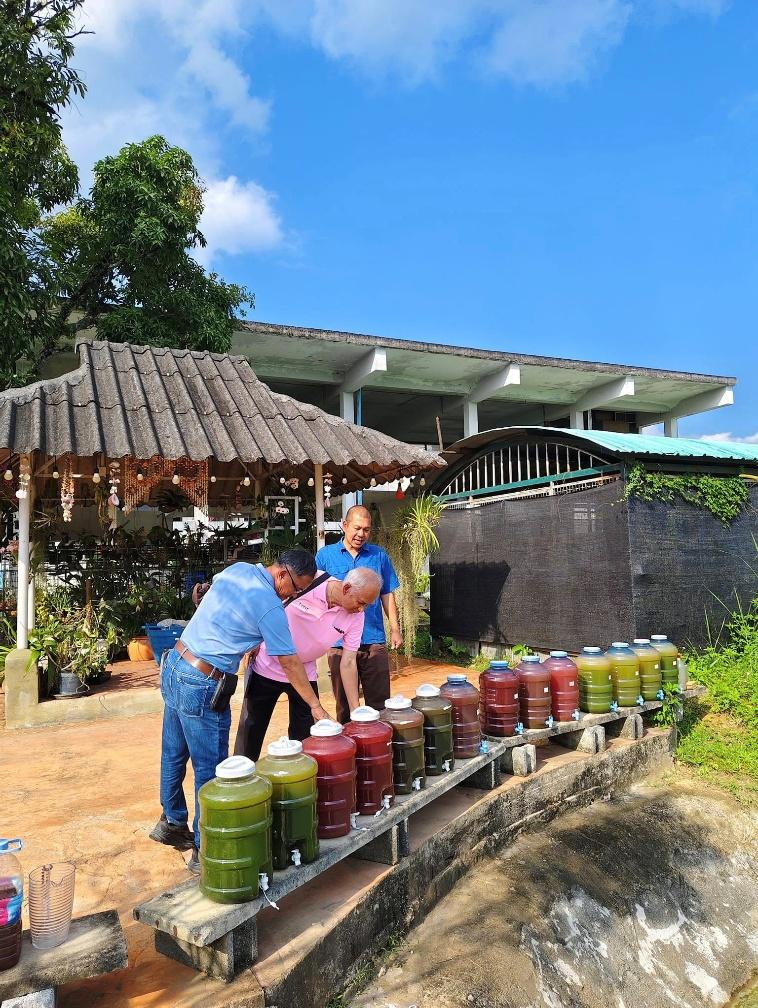
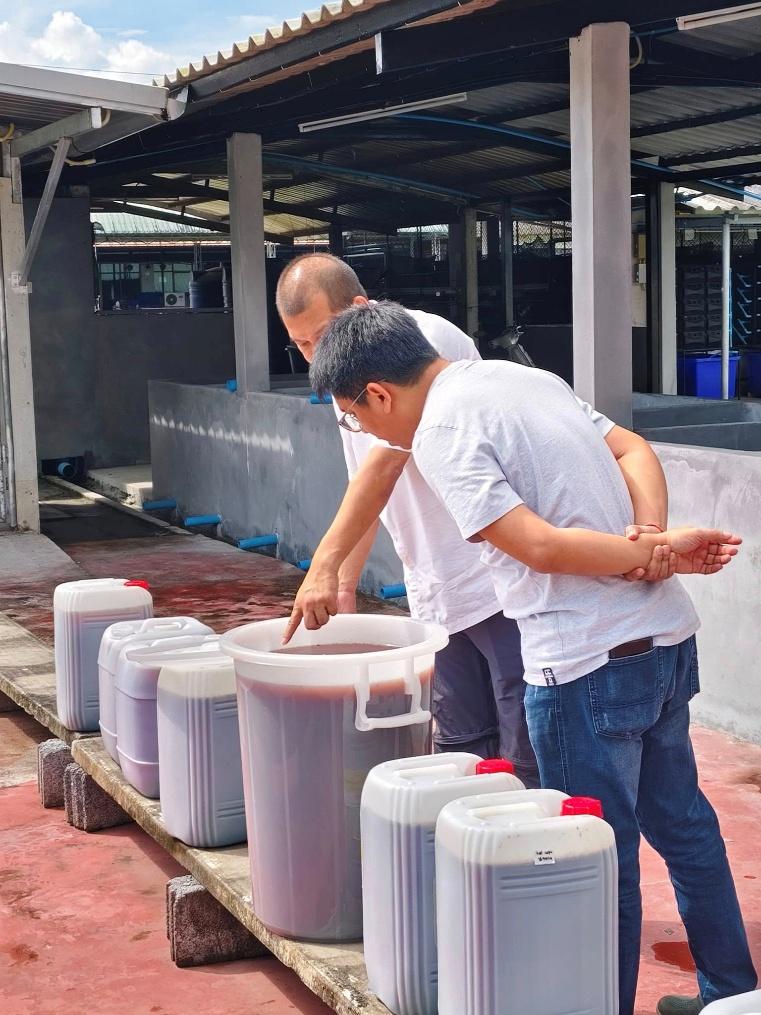
Project 2: Agricultural Waste Transformation for Soil Restoration
The second initiative addresses land degradation through innovative utilization of cocoa husk waste as fermented animal feed. This project tackles two environmental challenges simultaneously: agricultural waste management and sustainable livestock production. By developing fermentation protocols for cocoa husks, researchers have created a valuable feed resource from what was previously considered agricultural waste, reducing disposal problems while providing nutritious animal feed.
This innovation supports sustainable land management by decreasing the environmental burden of agricultural waste accumulation and reducing the need to clear additional land for feed crop cultivation. The fermented cocoa husk feed demonstrates how circular economy principles can be applied in agriculture, turning waste streams into valuable resources while preserving land from degradation.
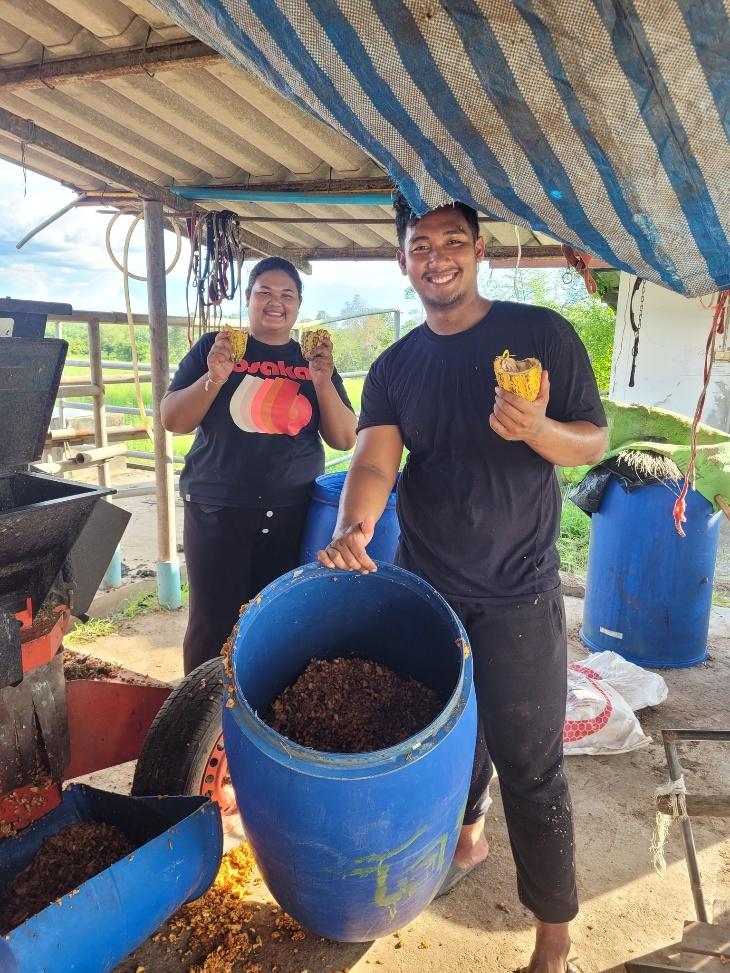
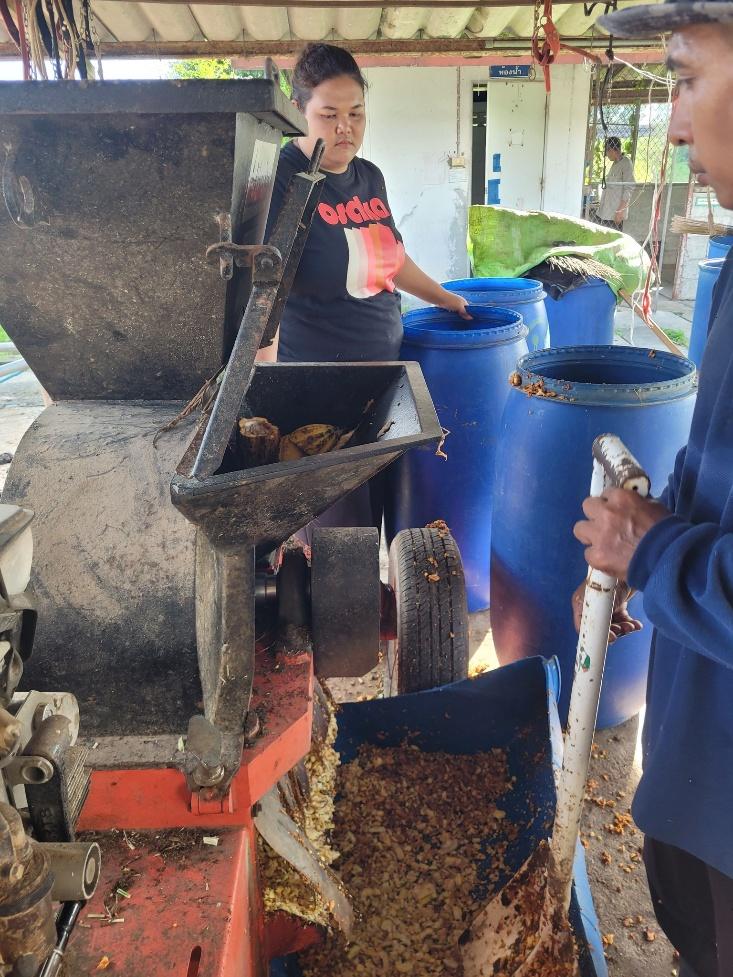
Research Impact and Scalability
Both projects exemplify how scientific innovation can drive land restoration and sustainable use of terrestrial ecosystems. The PSB technology has been successfully scaled from laboratory development to field implementation, with numerous farmers now actively using the system to restore abandoned aquaculture lands. The microbial bank model ensures long-term sustainability by building local capacity and reducing reliance on external resources.
The cocoa husk fermentation project demonstrates potential for broader application across Thailand’s agricultural sector, particularly in southern provinces where cocoa production generates substantial waste. By establishing processing protocols and demonstrating feed quality, the research creates pathways for wider adoption.
Alignment with SDG 15.3.1
These initiatives directly support SDG Indicator 15.3.1 by promoting sustainable use, conservation, and restoration of terrestrial ecosystems. The PSB project actively restores degraded aquaculture lands, preventing desertification of abandoned ponds and rehabilitating coastal land areas. The agricultural waste valorization project reduces land pressure by transforming waste into resources, supporting sustainable agricultural practices that prevent further land degradation.
Through these biotechnological innovations, RUTS demonstrates institutional commitment to combating land degradation, restoring ecosystem functions, and promoting sustainable land management practices that benefit both local communities and the environment.
Related Links:
https://www.facebook.com/share/p/1FShzAVBgj
https://www.facebook.com/groups/1388821681378037/posts/3738569793069869

